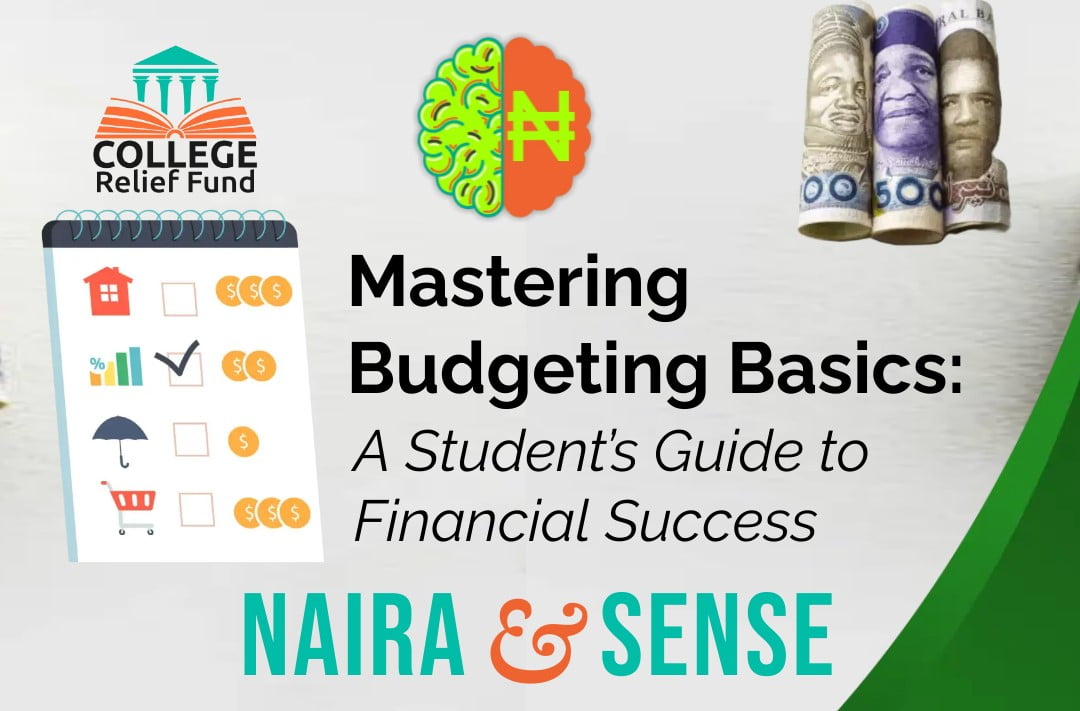Mastering Budgeting Basics: A Student’s Guide to Financial Success

Budgeting is a fundamental skill that forms the cornerstone of financial success. Whether you’re a college student living on a tight budget or a recent graduate navigating your way through the real world, having a solid budgeting strategy is essential for managing your finances effectively. In this comprehensive guide, we’ll explore the basics of budgeting and provide practical tips to help you create and stick to a budget that works for you.
Learning Outcome:
By the end of this article, readers should have learned:
- The importance of budgeting in achieving financial stability.
- The basic steps involved in creating a budget, including assessing income, identifying expenses, setting financial goals, and tracking spending.
- Strategies for effectively managing both fixed and variable expenses.
- The significance of regularly reviewing and adjusting your budget to reflect changes in your financial situation.
Understanding the Basics
At its core, a budget is simply a plan for how you will allocate your income to meet your expenses. It involves tracking your income, identifying your expenses, and finding ways to ensure that your spending aligns with your financial goals. While the concept of budgeting may seem daunting at first, breaking it down into manageable steps can make it much more approachable.
Step 1: Assess Your Income
The first step in creating a budget is to determine your total income. This includes any money you earn from part-time jobs, internships, scholarships, or allowances. Be sure to account for any irregular or variable sources of income as well, such as cash gifts or freelance work.
For example, if you work part-time at a local business and earn ₦0,000 per month, receive a ₦50,000 monthly allowance from your parents, and occasionally earn extra cash from freelance graphic design projects, you would add up all these sources of income to calculate your total monthly income.
Step 2: Identify Your Expenses
Next, take stock of your expenses. Start by categorizing your expenses into fixed and variable categories. Fixed expenses are those that remain relatively constant from month to month, such as rent, utilities, and tuition fees. Variable expenses, on the other hand, fluctuate from month to month and may include things like food stuff, transportation, and entertainment.
For example, your fixed expenses might include monthly rent of ₦10,000 (₦120,000 annually), utilities of ₦5,000, and tuition fees of ₦80,000. Variable expenses could include food stuff (groceries), which might range from ₦10,000 to ₦15,000 per month, transportation costs of ₦8,000 to ₦15,000, and entertainment expenses, such as dining out or going to the movies, which can vary depending on your social activities.
Step 3: Set Financial Goals
Once you have a clear picture of your income and expenses, it’s time to set some financial goals. These goals can be short-term (such as saving for a new laptop) or long-term (such as paying off loans, annual rent, or starting a business). Having specific, measurable goals will help you stay motivated and focused as you work towards financial stability.
For example, you may set a short-term goal of saving ₦100,000 over the next three months to purchase a new laptop for your studies. A long-term goal might be to start a business within five years by making extra payments each month.
Step 4: Create Your Budget
Now that you have a good understanding of your income, expenses, and financial goals, it’s time to create your budget. Start by allocating a portion of your income to cover your fixed expenses, then allocate the remaining funds to your variable expenses and savings goals. Be sure to prioritize your needs over wants and adjust your budget as needed to accommodate changes in your financial situation.
For example, if your total monthly income is ₦80,000 and your fixed expenses amount to ₦40,000, you would allocate the remaining ₦40,000 to cover your variable expenses and savings goals. You might allocate ₦20,000 for groceries, ₦8,000 for transportation, and ₦12,000 for savings towards your short-term and long-term goals.
Step 5: Track Your Spending
Once your budget is in place, it’s important to track your spending to ensure that you’re staying on track. There are many tools and apps available that can help you monitor your expenses and identify areas where you may be overspending.
For example, some popular budgeting apps for iPhone and Android include “Wallet”, “Expense Manager”, “Money Lover”, and “Monefy”. These apps allow you to input your income and expenses, categorize your transactions, set spending limits, and receive alerts when you exceed your budget.
Conclusion: Reviewing Your Budget Plans
In mastering budgeting basics, reviewing your budget plans is a crucial step towards financial success. Regularly assessing and adjusting your budget allows you to track your spending, identify areas for improvement, and stay on track towards your financial goals. Here are some key steps to consider when reviewing your budget:
- Track Your Expenses: Keep track of your spending by recording all your expenses, including fixed costs like rent and utilities, as well as variable expenses like groceries and entertainment. Use a budgeting app or spreadsheet to categorize your expenses and calculate your total spending each month.
- Compare Actual vs. Budgeted Expenses: Once you’ve tracked your expenses, compare them to your budgeted amounts to see how well you’re sticking to your financial plan. Identify any discrepancies or areas where you may have overspent, and consider adjusting your budget accordingly for the following month.
- Identify Opportunities for Savings: Reviewing your budget can help you identify opportunities for saving money. Look for areas where you may be able to cut costs or reduce expenses, such as dining out less frequently, cancelling unused subscriptions, or finding cheaper alternatives for everyday purchases.
- Set Realistic Goals: Take this opportunity to review your financial goals and make sure they’re still relevant and achievable. If necessary, adjust your goals based on changes in your financial situation or priorities.
- Plan for the Future: Finally, use your budget review as an opportunity to plan for the future. Consider setting aside money for emergencies, saving for long-term goals like retirement or travel, and paying down any outstanding debt. By making proactive financial decisions now, you can set yourself up for success in the long run.
Remember, budgeting is an ongoing process, and it’s important to regularly review and adjust your budget as needed. By taking the time to review your budget plans regularly, you can stay on top of your finances and work towards achieving your financial goals.






Comments (59)
Thank you very much for this🙏🙏
Thanks for the information
Thanks for the update
This is who I live my life🥺
I really learnt a lot, thanks.
Wow! Inspiring